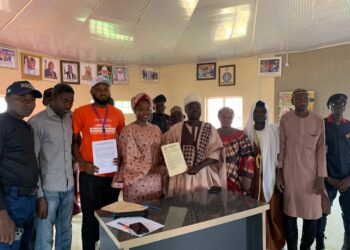The cost of a single in vitro fertilization (IVF) cycle in Nigeria has surged to approximately N2.1 million ($2,730), marking a 250 per cent increase compared to 2019, when prices ranged from N600,000 to N1.2 million. This sharp rise has made IVF less affordable for many, especially middle-income families. With an average annual income of around N2 million ($2,600), the cost of one IVF cycle now exceeds a year’s salary for many, particularly since multiple cycles are often required for success.
Dr. Kemi Ailoje, Reproductive Endocrinologist and CEO of Lifelink Fertility, highlighted the growing acceptance of assisted reproductive technologies among couples facing infertility challenges. However, she emphasized that more awareness is needed, especially in rural areas, despite recent efforts in urban communities.
Current pricing from various fertility centers shows that two IVF cycles can now cost about N3.8 million ($4,940), while three cycles can reach up to N5.6 million ($7,250). Some clinics charge as much as N7.6 million for three cycles, placing a heavy financial burden on couples seeking fertility treatments.
Nigeria’s IVF landscape has expanded, with around 180 clinics operating across the country, a significant increase from past years. However, the rising costs mean many couples are left with fewer options.
When compared globally, IVF in Nigeria is relatively more affordable than in places like the U.S., where treatments range from $14,000 to $20,000 per cycle, and in the UK, where costs are between £5,000 and £8,000. Countries like Turkey offer more affordable options, with treatments starting at €1,700, while Denmark and Spain hover around €3,500 to €4,000.
The global IVF market is poised for significant growth, projected to rise from $27 billion in 2022 to $37.4 billion by 2030, according to Grand View Research, Inc. This growth, driven by a compound annual growth rate (CAGR) of 5.54 per cent, reflects increasing demand for fertility treatments as global fertility rates decline.
In Nigeria, Prof. Oladapo Ashiru, founder of the Medical Art Center and Secretary General of the International Federation of Fertility Societies, highlights the seriousness of infertility, with one in four Nigerians facing fertility challenges compared to the global average of one in six. He estimates that about 35 per cent of people seeking to conceive may need assisted reproductive technology (ART).
Prof. Ashiru noted that IVF has become an essential tool for addressing infertility issues, with more Nigerians and even foreigners from Europe, America, and other parts of Africa seeking treatment in Nigeria due to relatively lower costs. He explained that the devaluation of the Naira and inflation have driven up the cost of treatments, with drug prices skyrocketing, contributing to the overall rise in IVF costs.
IVF is a medical procedure used to assist conception by fertilising an egg outside the body in a laboratory setting. It is recommended for couples or individuals facing fertility issues such as blocked fallopian tubes, ovulation disorders, low sperm count, or genetic disorders. However, the significant increase in IVF costs has made the treatment even less accessible to average Nigerians.
Fertility treatments are typically not covered by most health insurance plans in Nigeria, and the government’s reproductive health efforts focus more on maternal and child health, leaving IVF as a costly out-of-pocket option for those struggling with infertility.
Nigeria’s fertility rates have steadily declined since the 1950s when families commonly had five to six children. Prof. Ashiru warns that if this trend continues, Nigeria may face population replacement challenges by 2050. The escalating cost of IVF, compounded by the lack of insurance coverage, has made access to reproductive care increasingly difficult for many.
Couples like Gloria and Peter, both in their late 30s, are feeling the financial strain of pursuing parenthood through IVF. “After several failed attempts to conceive naturally, we turned to IVF. The cost—ranging between N4 million to N5 million at reputable clinics—was overwhelming,” Nkechi shared.
Similarly, Clara and her husband, who faced secondary infertility after multiple miscarriages, struggled with the cost and stigma surrounding IVF. “Though I had a child years ago, conceiving again became difficult. The high cost and social stigma made us hesitant, but we knew IVF could help,” Josephine said.
Dr. Ailoje explained that rising infertility rates in Nigeria are influenced by a variety of factors, particularly among women. These include poor access to healthcare, untreated sexually transmitted diseases (STDs), and delays in starting families due to career pursuits. Additionally, environmental pollutants and occupational hazards are becoming increasingly concerning contributors to infertility.
In conclusion, while IVF offers a critical solution for many aspiring parents, the growing costs and lack of government support are major barriers. There is a pressing need for intervention to make fertility treatments more accessible to Nigerians facing infertility challenges.
Marketers Accuse NNPC of Overpricing Fuel Bought Below N900





